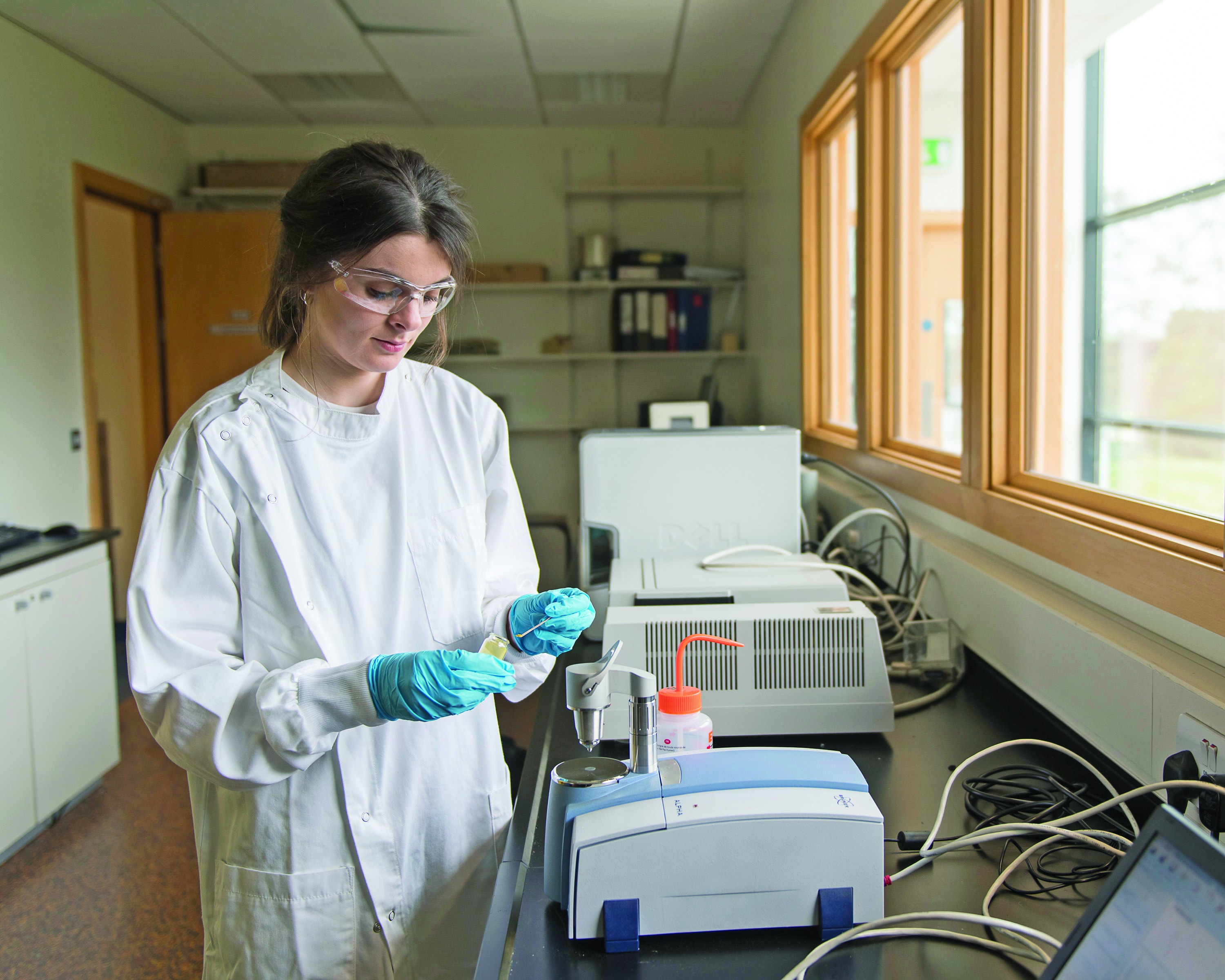Course Information
BSc (Hons) (NFQ Level 8)
Full Time – Undergraduate Studies
CAO Code: DN200
CAO Points Range 2019: 521
Length of Course: 4 Years
Average Intake: 400
- O2/H6 in Mathematics
- O2/H6 in a laboratory science (Applied Mathematics, Computer Science or Geography may be used instead of a laboratory science subject) and
- O6/H7 in English, Irish and two other recognised subjects
- A-Level/GCSE
- Other EU Applicants
- Non-EU Applicants
- QQI FET Entry Routes
- Level 6/7 Progression Routes
Why is this course for me?
Two major problems are facing industrialised society. How do we maintain our standards of living without, firstly, using non-renewable resources as sources of energy and as raw materials for manufacturing industries and, secondly, compromising our local and global environment?
Chemistry with Environmental & Sustainable Chemistry will be central to solving these problems. This discipline, which draws from all branches of chemistry, will enable us to produce the materials and energy we use through ways that minimise the impact on the environment. Furthermore, it will be crucial in developing a variety of resources (solar power, biofuel synthesis, fuel cells, etc.) for use in renewable energy generation. The degree is suitable for students who have an interest in the use of chemistry in tackling these urgent problems.
Career & Graduate Study Opportunities
Apart from the disciplines that are available to graduates with a BSc in Chemistry, graduates in Chemistry with Environmental & Sustainable Chemistry will be particularly suited to employment in the environmental and emerging energy industries, including:
- Commercial environmental analysis
- Alternative energy industry
- Environmental Protection Agency
- ESB
- Bord Gáis
Graduates can also pursue a range of MSc or PhD opportunities in Ireland or abroad.
What Will I Study
This is a sample pathway for a degree in Chemistry with Environmental & Sustainable Chemistry.
First Year
- Chemistry
- Mathematics
- Biology
- Optional Science modules
- Elective module
Second Year
- Chemistry, Environmental Chemistry
(with Geology modules discussing climate change) - + 1 other Science subject
- Elective modules
Third Year
- Physical, Inorganic and Organic Chemistry with optional modules in Geology and Ecology
Fourth Year
- Environmental & Sustainable Chemistry (includes a research project in an aspect of Environmental & Sustainable Chemistry)
- Options will include Green Technologies/Chemistry in Energy Generation.
- Optional Industry Internship module.
All Science courses are full time, with many student timetables running from 9.00am to 5.00pm or later. Depending on the subject choices, a weekly timetable can include lectures, practicals and tutorials.
Assessment varies with each module but may comprise continuous assessment of practicals, written exams and online learning activities.
International Study Opportunities
Students may apply to spend time studying at the following universities:
- University of Lund, Sweden
- University of Virginia, USA
- McGill University, Canada
Testimonial
“I believe a knowledge in Chemistry with Environmental & Sustainable Chemistry is very applicable in industry as legislation is being introduced that holds industries accountable for the waste they produce. This degree investigates how Chemistry can be used to tackle issues such
as global warming, acid rain, water pollution and ozone layer depletion. During my final year, I had the opportunity to carry out research with Dr Tony Keene’s research group. This allowed me to hone the techniques I learned in the lab throughout my first three years, as well as giving me a flavour of what postgraduate research involves. Following graduation, I plan to continue my study of Environmental Chemistry and eventually, I would like to work within an industrial laboratory to implement the principles of green chemistry.”
Eimear Madden Student

